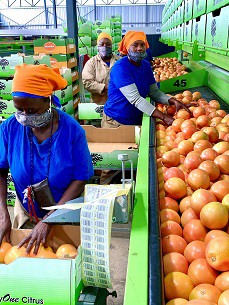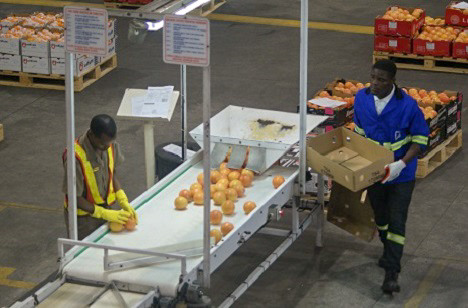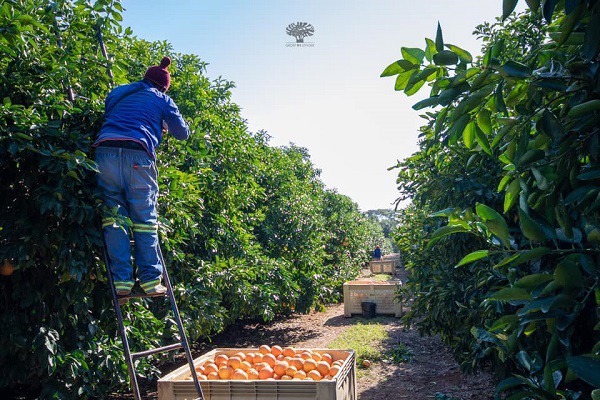 South Korea's decision to waive the 30% import tariff on imported grapefruit incentivized South African packhouses to pull out all the stops. Initially the tariff was set to resume again in July, but two weeks ago the Korean Finance Ministry announced an extension of the measure intended to ease the burden of food inflation on South Korean consumers.
South Korea's decision to waive the 30% import tariff on imported grapefruit incentivized South African packhouses to pull out all the stops. Initially the tariff was set to resume again in July, but two weeks ago the Korean Finance Ministry announced an extension of the measure intended to ease the burden of food inflation on South Korean consumers.
"A fairly substantial volume of South African grapefruit is still en route to South Korea, with much of it expected to arrive only after the initial expiry date of the tariff relief. After this latest extension, all South African grapefruit exported to South Korea in 2024 will now benefit from the reduced import duties, translating into a much-needed higher return back on farm for the grower," says Jan-Louis Pretorius, CEO of Letsitele-based Groep 91 Uitvoer and vice-chairperson at the Citrus Growers' Association.
Worldwide demand for grapefruit has become lukewarm in the last few years. South Korea is one of the last remaining grapefruit strongholds, one of very few countries still to receive Floridian and Californian grapefruit along with South African product.
A "gigantic effort" was therefore put in to make the most of this windfall, Pretorius says: in their own packhouse, a team of up to sixty people cleaned and inspected 4.4 million individual units of grapefruit to ensure that they are free of mealybug, finessing the procedure over the course of the season to a 100% success rate, which means no rejections for mealybug by Korea's own inspector stationed in Durban during grapefruit season.
Supplying the market to a level much more aligned to its demand
Without the relief from the heavy import duty, they would never have been able to afford this additional cost, and it paid off: despite some rejections, in toto South Africa has more than doubled the volume of grapefruit shipped to South Korea when compared to 2023, supplying the market to a level which is much more aligned to its natural demand, he notes.
"Despite everyone's best efforts to get their fruit onto vessels to reach Korea before the end of June, it wasn't always possible because of delays in the inspection process and loading out in Durban. Even then, the current congestion and delays in the port of Singapore have pushed out arrival dates even further. The extension of the relief measure won't necessarily make a significant difference to the rest of the grapefruit season, as the majority of fruit has already been packed away with growers switching over to oranges. Having said that, with the announcement that the duty remains at zero, growers who did leave some of their grapefruit for the late market will at least be rewarded with another viable destination to choose from, which would not normally be the case."

Grapefruit inspected at FPT, Durban
Further possible reductions to Valencia export crop
Pretorius remarks that the Letsitele area, like many other parts of South Africa, experienced uncharacteristically dry and hot periods throughout their summer (with the exception of the last two weeks of 2023 when they received the most rain in 60 years), which has negatively affected fruit size across all categories of citrus as well as other crops, like macadamias.
The total number of fruit units per tree was not affected, but when one has smaller fruit, more units are required to fill a standard 15kg export box to capacity, hence the reduction in export estimates of which there are probably more to come.
"The Valencia export estimate is likely to see progressive downward adjustments as the industry starts harvesting at full capacity and the reality of their packouts and export volumes become clearer," he says, adding that the attractive prices offered for local juicing and processing of oranges will also shave volumes off exports.
 For more information:
For more information:
Jan-Louis Pretorius
Groep 91 Uitvoer
Tel: +27 15 345 1671
Email: [email protected]
https://www.facebook.com/p/Groep-91-Uitvoer
